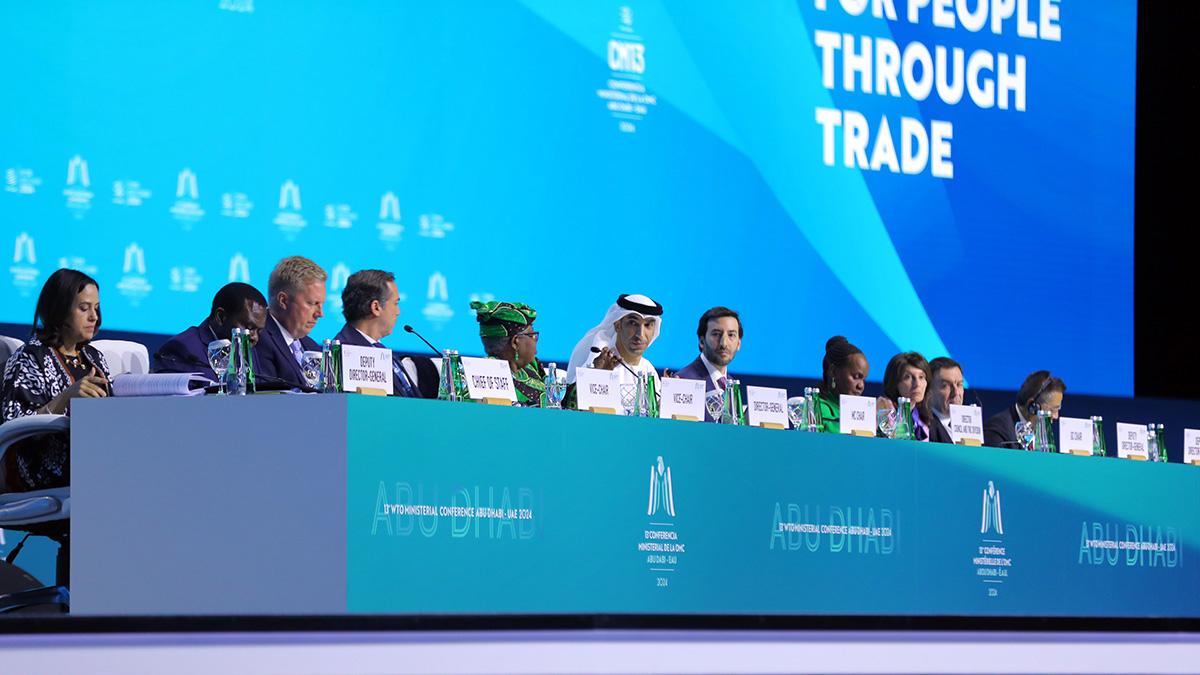G-33 calls for progress on agricultural trade ahead of WTO Ministerial Conference

- 26 Feb 2024
Why is it in the News?
The G-33 group of countries recently expressed serious concern over the lack of progress in agriculture trade negotiations and urged the members of the World Trade Organisation (WTO) to work on a permanent solution to the issue of public stockholding of grains for food security purposes.
Key Highlights of the G33 Trade Ministers Meeting in Abu Dhabi:
- Special Safeguard Mechanism: The G33 group emphasized the importance of the Special Safeguard Mechanism (SSM) as a crucial instrument against significant import surges or sudden price declines.
- They called for WTO members to reach an agreement and adopt a decision on SSM by the 14th WTO Ministerial Conference (MC).
- Permanent Solution for Public Stockholding: The G33 nations sought a permanent solution during the 13th Ministerial Conference, which commenced in Abu Dhabi recently.
- The MC serves as the highest decision-making body of the WTO.
- Critical Importance of Public Stockholding: The G33 statement highlighted the critical significance of public stockholding for food security in developing countries.
- It enables governments to procure crops from farmers at the minimum support price (MSP) and store and distribute food grains to the poor.
- This program supports low-income or resource-poor producers and contributes to rural development.
- The 13th WTO Ministerial Conference provides a crucial platform for WTO members to engage in constructive discussions and work towards finding mutually beneficial solutions.
What is G 33?
- The G33 is a forum of developing countries including India, Brazil, South Africa etc. formed during the Cancun ministerial conference of the WTO (2003), to protect the interest of the developing countries in agricultural trade negotiations.
- It was created to help group countries which were all facing similar problems.
- The G33 has proposed special rules for developing countries at WTO negotiations, like allowing them to continue to restrict access to their agricultural markets.
- Dominated by India, the group has "defensive" concerns regarding agriculture in relation to World Trade Organization negotiations, and seeks to limit the degree of market opening required of developing countries.
- The group has advocated the creation of a "special products" exemption, which would allow developing countries to exempt certain products from tariff exemptions, and also a "special safeguard mechanism" which would permit tariff increases in response to import surges.
